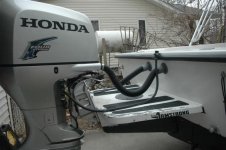charleyfarley
New member
There is so much oxidisation on the cooling passages of my engine that the water is unable to circulate. My mechanic says he is locating a mild acid to flush it out, but there is a concern that this step may itself cause corrosion damage.
Is there any treatment for this condition? The engine overheats within minutes of firing her up.
I haven't had the boat long so I can blame the previous owner for not flushing regularly, for all the good that does.
I would really appreciate any advice or guidance - thank you!
Charles
Is there any treatment for this condition? The engine overheats within minutes of firing her up.
I haven't had the boat long so I can blame the previous owner for not flushing regularly, for all the good that does.
I would really appreciate any advice or guidance - thank you!
Charles


